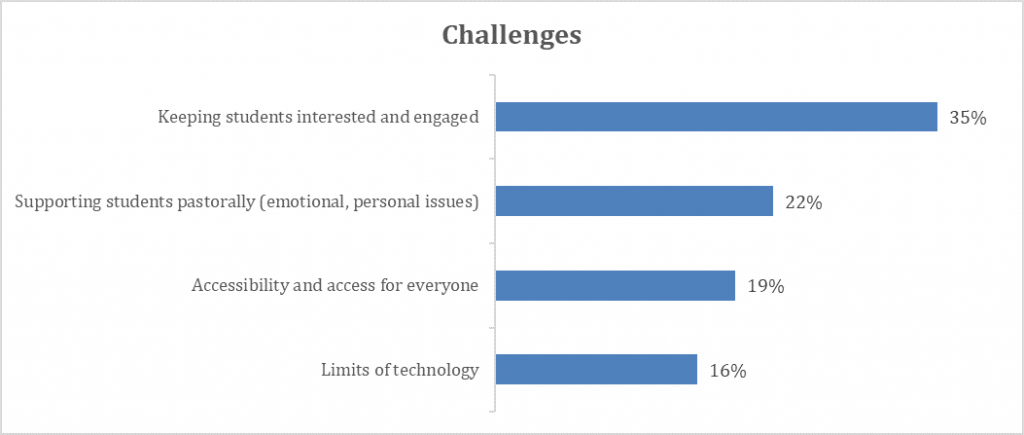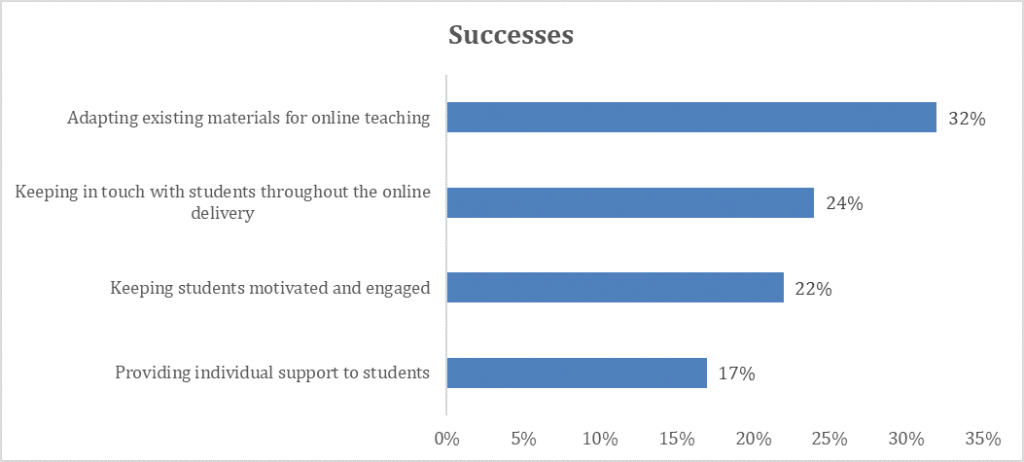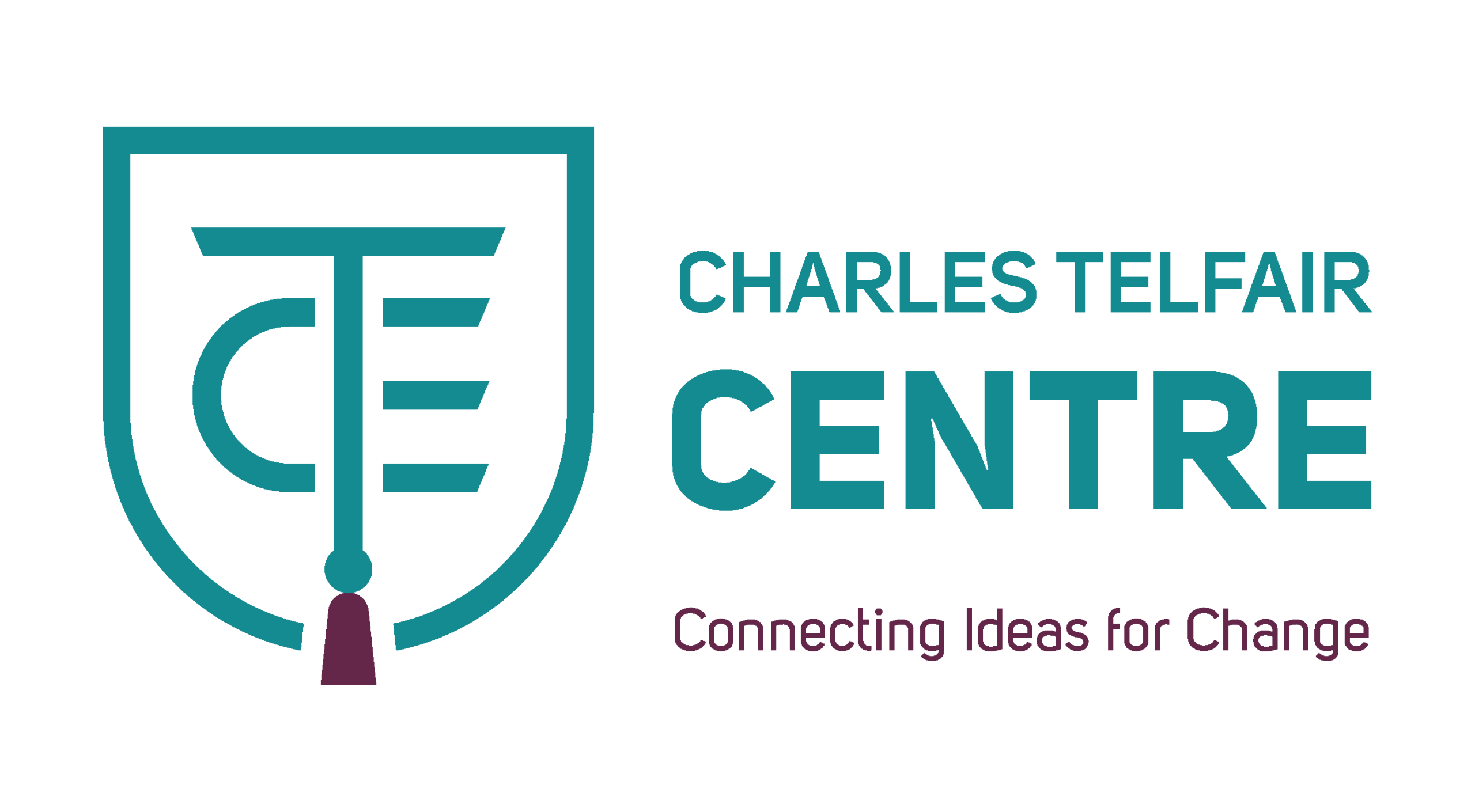Office for Innovation, Learning, Teaching and Research (ILTR), Charles Telfair Campus – Odylle Charoux, Director of Innovation and Change Management; Shafiiq Gopee, Head, Office of Learning and Teaching; Vikash Rowtho, Head of Research.
During the COVID19 lockdown, the Charles Telfair Campus (CTC), a private higher education provider in Mauritius, transitioned all its learning, teaching and assessment activities online without interruption. In this case study, the team behind the Office for Innovation, Learning, Teaching and Research (ILTR) explains how CTC’s collaborative leadership model, its culture of support and the optimisation of its structures and networks have, together with everyone’s hard work, ensured the successful continuity of learning for all CTC students.
An unprecedented global disruption
According to UNESCO, the education of 1.5 billion students, from 160 countries, has or continues to be impacted by the COVID-19 pandemic. For some, sadly, education came to a stand-still, but for others contingency plans to ensure the continuity of learning were rapidly deployed. In March of 2020, when the Mauritian Government announced the country’s lockdown, it was estimated that 850 million individuals had transitioned to alternative forms of teaching and learning worldwide.
Following the lockdown announcement, all local universities in Mauritius moved online with various degrees of success. Institutions better equipped for online learning, such as the University of Mauritius, Open University of Mauritius and most private institutions managed to transition to some form of online teaching delivery, but not all could deliver assessment online. During the lockdown, the Charles Telfair Campus (CTC), a private higher education provider in Mauritius, transitioned all learning, teaching and assessment activities online without interruption. The campus managed to maintain student engagement and performance throughout the transition:
“The entire CTC student population switched to studying online the moment confinement was imposed. Although this period has been challenging for everyone, the success of this rapid transition reflects the agility and commitment of our staff to their students, as well as the efficacy of the various systems and processes already in place at our campus. Covid-19 gave us the opportunity to test our institution’s values as driver of change and people actions during difficult times. Today, I can proudly salute our staff for the amazing job done. I also salute all CTC students for their maturity, positive attitude and excellent academic achievements, despite all the obstacles encountered this semester”. Dr Jeremy Charoux, Executive Director, Charles Telfair Campus, July 2020.
CTC’s successful transition from face-to-face to online learning and teaching was achieved thanks to three key factors: transformational leadership, a culture of commitment to students experience and operating structures.
Leadership in Learning and Teaching
At the onset of the Covid19 pandemic a contingency plan, to pursue operations in the event of a campus closure was prepared by the Executive Director in collaboration with the Pro-Vice-Chancellor of Curtin Mauritius and the CTC Management team, including the three members of the Office for Innovation, Learning, Teaching and Research (ILTR). It was agreed that an immediate switch to virtual delivery, with no pause or disruption to the academic calendar and no change to timetables for both students and instructors, would take place to allow continuity in students’ learning. This was followed by an academic staff meeting during which the pedagogical implications of the online transition were reviewed and best practices discussed. On Wednesday 18 March, an immediate country lockdown was announced by the Mauritian Government. On the very next day, all classes at CTC transitioned to an online delivery mode and all academics were asked to continue to deliver the curriculum to help their students meet the semesters planned learning outcomes. Instructors were encouraged to select the learning strategies and tools which they saw as best fit to meet the needs of their students and the constraints of their curriculum.
During ‘normal’ times, the ILTR team plays a leading role in empowering and motivating CTC academics in their task of delivering high-quality learning and teaching experiences to the diverse, 2000-strong, student population. To achieve this mission, ILTR team members strive to keep up to date with best global practices and scholarly research in education. As it is the case for other institutions of Higher Learning, the biggest challenge remains the sharing of lessons learnt with the passion required to inspire others to adopt them.
Over the years, the ILTR team adopted Transformational Leadership Strategies developed by Bernard Bass, which proved successful both during normal time and during the forced Covid-19 transition to online learning. One such strategy was the creation of ONE Leadership Team, consisting of all Faculty Heads and ILTR team members, to provide academic direction for the institution together, in a collegial and cohesive manner. A second strategy was to conduct weekly meetings when entire faculty engaged in exploration of scholarly research, shared teaching experiences, tested new learning and teaching practices and resolved issues through consensus. The focus was on developing passion, providing inspiration and giving choices while facilitating decision-making. Ruslan Desyatnikov argues that Bass’ Transformational Leadership style can help organisations deal with the agility required to succeed in such crisis situations as the COVID-19 Pandemic:
“Transformational leaders see the bigger picture to better understand the extent of the crisis before executing the response. They seek the counsel of those closest to the situation and harness others’ know-how to create a logical, flexible and adaptive plan.” (Desyatnikov R, 17 July 2020).
During a ‘post-mortem’ reflection on CTC’s transition to online delivery conducted on 27 July 2020 with all academics, staff shared their online transition experience.They described their experience as very challenging but successful and enriching in terms of student engagement, continuity in student performance and professional growth. The ILTR also conducted a poll among all its academic staff using a digital questionnaire adapted from “How to Teach Online: Providing Continuity for Students”, a MOOC offered by FutureLearn (2020).
Interestingly, according to this poll, the biggest challenges for CTC staff: i.e. keeping students interested and engaged (35% of staff), and pastoral care (21% of staff) were also recognised as dimensions of success: i.e. keeping students engaged (22% of staff) and supported (17% of staff).


Monitoring Progress and Targeted Student Support
Supporting students during online study is essential for success. Tony Bates identifies the primary source of support as the instructor who guides, mentors, moderates, and provides student feedback and assessment:
“Particularly in online environments where students can feel isolated, your continuous feedback is essential to supporting their learning…. Where students feel the instructor is not present, both learner performance and completion rates decline. For such students, good, timely learner support is the difference between success and failure”. (Bates T, 2019)
One of the major pre-occupations of the ILTR team was how to monitor the impact of the online approach on each learner throughout the crisis, to ensure timely support by Heads of Faculties and instructors. One simple, but highly successful tool used for monitoring the progress and support of individual students was the introduction of Google Sheets for students to provide quick feedback to their instructors about each learning session, share their progress or raise issues.
Beyond academic issues, students needed further support on aspects such as availability of digital tools, poor bandwidth or feelings of loneliness and anxiety, amongst others. More formal student evaluation surveys, using Qualtrics, were thus run by the ILTR team during the lockdown period. The results were analysed and immediate remedial support was activated by all concerned, including lecturers, administrative staff, counselling professionals or IT support staff.
Academic Team Support
Much effort was deployed by the Heads of Faculties, to ensure that all staff remained connected, engaged, informed and supported throughout the confinement. Proceedings of all group meetings were documented and shared for follow-up actions. The Heads of Faculties were key in maintaining the resilience, collegiality and can-do attitude which prevailed amongst the academic staff. They took the time to listen to concerns, expressed gratitude for extraordinary work being done by individuals and encouraged sharing of best practice and know-how. They led by example by taking on board the tedious task of following up on students’ issues, calling those who did not join classes to motivate, get feedback, and liaise with support teams to solve identified problems. They remained on-call throughout the day, including evenings and weekends.
Structure, Networks and Digital preparedness
Another key factor for successful online delivery is, of course, access to IT tools, the internet and a minimum level of digital preparedness. During this pandemic, the digital divide prevailing in less developed countries meant that education was and is still completely disrupted for millions of students. In Mauritius, the rate of mobile phone uptake, as well as the rate of internet uptake for 2019 both exceed 100%. Yet, the Covid-19 pandemic revealed important disparities in the ability to harness the power of technology and the internet within the Mauritian society. The constraints were varied, ranging from unsuitable devices, lack of skills, challenging home environment, poor or interrupted internet connection and regular power failures.
Unlike some other learning communities in Mauritius and beyond, the CTC community has the advantage of being well-equipped for online studies. Lecturers and students own a personal laptop or other digital devices, have access to the internet and use a range of modern software tools during their studies.
The acquisition of digital dexterity is an integral part of the CTC curriculum and about two-thirds of the student population use Blackboard, a reputable Learning Management System (LMS). These students and their instructors had the required structure for the online transition. The other third, who could not access Blackboard, had picked up some knowledge of LMS and their functionality from their peers and could create their own online learning systems by combining simpler available software. Full online delivery of courses was, however, a totally new practice for most faculty members and students.
An additional advantage for CTC online transition was the continuous support of its international academic partners during the crisis period. For example, Curtin University, through its Pro-Vice-Chancellor, ensured that all assessment tasks were transformed by the Unit Coordinators in Perth for the local context, including solutions to cope with the local power cuts or poor internet bandwidth. Curtin also ensured that students received the training required prior to engaging in proctored, online examinations on their own. Similarly, our North and South Metropolitan TAFE partners quality assured all assessment tasks which our lecturers had to modify for remote learning
Lessons Learnt and Future Plans
The teaching semester for CTC ended at the end of June, with students completing final assignments or proctored exams on-line, at home. Most CTC students scored well; some doing better than during the face-to-face teaching era. CTC’s collaborative leadership, its culture of support and the optimisation of its structures and networks have, together with everyone’s hard work, ensured continuity of learning for all CTC students.
In the event of further lockdowns, CTC is confident in its ability to deliver its courses online. We also know that, with better preparation, more time and increased knowledge of online tools and pedagogy, we can do better. While it has been truly inspiring to witness our colleagues’ and partners come together to assure continuity of learning and support students in the rapid transition to virtual learning, there are still uncertainties and challenges ahead. We must prepare for a future where online learning, in one way or another, will probably play an important role in education. Our goal is to ensure that our learners receive the best possible learning experience while achieving their educational objectives without disruptions in the event of any further crisis such as a second wave of COVID-19 infection or other unforeseen similar catastrophes.
Charles Telfair Centre is an independent nonpartisan not for profit organisation and does not take specific positions. All views, positions, and conclusions expressed in our publications are solely those of the author(s).
Main image source: Photo by Peter Olexa from Pexels

